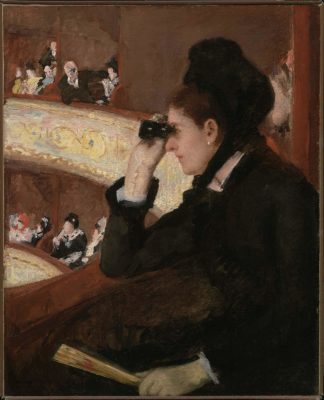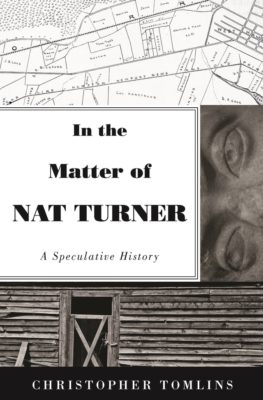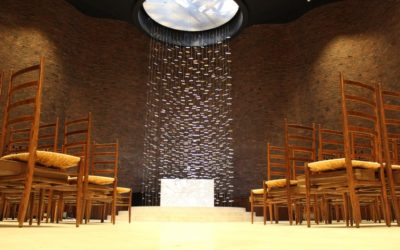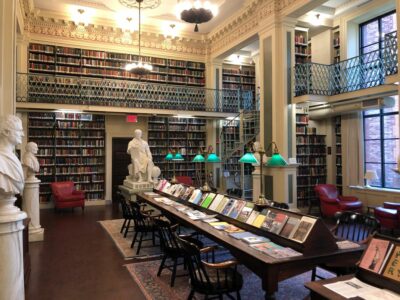
“In the Loge,” Mary Cassatt, 1878 (Museum of Fine Arts, Boston)
Hello, USIH friends! A quick reminder that we have a fantastic February’s worth of webinars coming up, as well as several excellent roundtables here at the blog. We hope you’ll join us tonight at 7pm EST for a conversation about Christopher Tomlins’ new book, In the Matter of Nat Turner, and enjoy 30% off Princeton University Press books with code CONF30. Scroll on down to see what’s right around the corner at #USIH2021, and check out our full conference program, publications, and resources here. Registration is FREE but it is REQUIRED for EACH event. Our FAQ’s about the conference are here. Join us!
 MONDAY, 25 JANUARY 2021, 7PM EST
MONDAY, 25 JANUARY 2021, 7PM EST
Author-Meets-Readers: Christopher Tomlins, In the Matter of Nat Turner: A Speculative History
Nat Turner is known to U.S. history as a Virginia slave who led a bloody rebellion that resulted in the death of fifty-five whites, mostly women and children. Beyond that, he is famous for being well-nigh unknowable. To the historian and Turner devoté Kenneth Greenberg, Nat Turner is “the most famous, least-known person in American history.” In the Matter of Nat Turner: A Speculative History attempts to retrieve Turner and his way of thinking. This roundtable will assess whether the attempt has succeeded.Panelists include Kunal Parker, Manisha Sinha, Chad Williams, and Christopher Tomlins.
MONDAY, 1 FEBRUARY 2021, 7PM EST
Polarization: What Role for History Commentary?
Historians are not politicians, political advisors, or advocates. Yet in their classrooms, they interact with a microcosm of the public in teaching ideologically diverse students about topics with multiple interpretations, bringing young people together for frank exchanges over diverse ideologies and values. And in their scholarship, historians identify precedents—effective and ineffective—that have anticipated recent politics, provide contexts surrounding popular talking points, and explain ways that debated narratives take shape. The work of this academic guild can serve as public classrooms with leavens to the fierce contests of American politics. Lessons from the classrooms and writing desks of historians can enrich political discourse enabling some of the swords of culture wars to become publicly useful ploughshares of democratic debates. Panelists include Daniel Wickberg, Paul Croce, Nicole Hemmer, Tim Lacy, Kathleen Sands, and Lisa Szefel.

M.I.T. Chapel, Eero Saarinen, 1955
MONDAY, 8 FEBRUARY 2021, 7PM EST
Illiberal Liberals: The Complexities of Progressive Ideals in the Twentieth-Century United States
Discussions of the late twentieth century culture wars in the United States tend to default to stark dichotomies: liberal, educated elites in cosmopolitan areas are presented in contrast to conservative populists in rural America. While useful as a way of framing the broad contours of this political and cultural divide, this characterization obscures the diversity present on each side of the debate. The papers on this panel seek to interrogate this complexity by exploring three cases of “illiberal liberals”: individuals and groups whose progressive values contained decidedly conservative impulses. Panelists include Chris Babits, David Mislin, Lora D. Burnett, Augusta Dell’Omo, and Benjamin L. Alpers.

Boston Athenaeum
TUESDAY, 9 FEBRUARY 2021, 7PM EST
How to Publish a Journal Article
The process of writing, revising, and, ultimately, publishing research in a peer-review journal can be complicated. At times, attempting to meet the expectations of editors, the field, and the always critical reviewer #2 can feel like a tall order. This roundtable brings together editors of peer-reviewed history journals and award-winning article authors to discuss the process of publishing your work in leading history journals. Panelists will discuss best practices for developing and successfully submitting (and revising) a manuscript, the relationship between the editor/reviewers and the author, and the particular challenges facing authors and journals during the current pandemic. Panelists include Andrew Klumpp, Angus Burgin, Veronica Martinez-Matsuda, Kate Masur, and Josh Piker.
MONDAY, 22 FEBRUARY 2021, 7PM EST
All intellectual history, in a sense, is reception history. Intellectual historians track ideas as they move across time and space. As these ideas are received. But the scholarship of reception history qua reception history has been particularly robust lately. That is, a growing number of books have recently been published on the American reception of non-American, particularly European thinkers. This panel will explore the many variations on reception history. Four papers by authors who are currently writing books that might be categorized as reception history will highlight their contributions relative to the field. In the process, some divergences are likely to emerge. Panelists include Helena Rosenblatt, Glory M. Liu, Andrew Hartman, Claire Rydell Arcenas, and Gregory Jones-Katz.

0